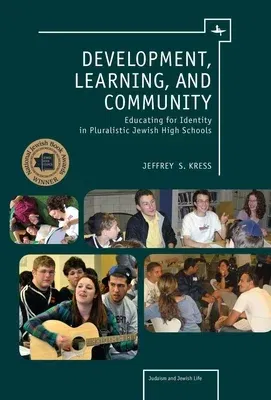Jeffrey Kress
(Author)Development, Learning, and Community: Educating for Identity in Pluralistic Jewish High SchoolsHardcover, 1 May 2012

Qty
1
Turbo
Ships in 2 - 3 days
In Stock
Free Delivery
Cash on Delivery
15 Days
Free Returns
Secure Checkout

Part of Series
Judaism and Jewish Life
Print Length
250 pages
Language
English
Publisher
Academic Studies Press
Date Published
1 May 2012
ISBN-10
1936235307
ISBN-13
9781936235308
Description
Product Details
Author:
Book Format:
Hardcover
Country of Origin:
US
Date Published:
1 May 2012
Dimensions:
23.39 x
15.6 x
1.42 cm
ISBN-10:
1936235307
ISBN-13:
9781936235308
Language:
English
Location:
Boston, MA
Pages:
250
Publisher:
Series:
Weight:
480.81 gm